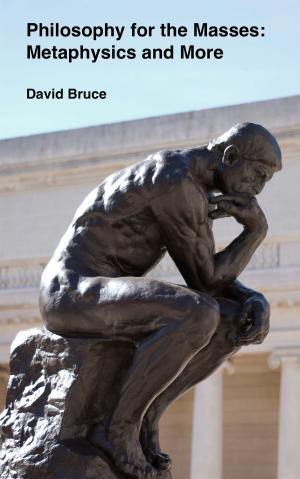| Author: | David Bruce | ISBN: | 9781301573127 |
| Publisher: | David Bruce | Publication: | January 22, 2013 |
| Imprint: | Smashwords Edition | Language: | English |
| Author: | David Bruce |
| ISBN: | 9781301573127 |
| Publisher: | David Bruce |
| Publication: | January 22, 2013 |
| Imprint: | Smashwords Edition |
| Language: | English |
I would like to see my retellings of classic literature used in schools, so I give permission to the country of Finland (and all other countries) to buy one copy of this eBook and give copies to all students forever. I also give permission to the state of Texas (and all other states) to buy one copy of this eBook and give copies to all students forever. I also give permission to all teachers to buy one copy of this eBook and give copies to all students forever.
Teachers need not actually teach my retellings. Teachers are welcome to give students copies of my eBook as background material. For example, if they are teaching Homer’s “Iliad” and “Odyssey,” teachers are welcome to give students copies of my “Virgil’s ‘Aeneid’: A Retelling in Prose” and tell students, “Here’s another ancient epic you may want to read in your spare time.”
After Troy is defeated in the Trojan War, the story of the Trojans is not over. Aeneas, the son of the immortal goddess Venus and the mortal man Anchises, is fated to go to Italy and become an important ancestor of the Romans. But fulfilling his fate is not easy. Juno, wife of the most powerful god, Jupiter, hates him. She wants him to fall in love with Dido, Queen of Carthage, so that he will stay in Carthage and never reach Italy. He does fall in love with Dido, but he is a man of PIETAS, a man who does his duty, and he takes a journey to the Land of the Dead, where he meets his late father, Anchises, who shows him future Romans, and who tells him, “Other peoples, no doubt, will be better than the Romans in many endeavors. Others will be better at creating sculptures, whether of bronze or of marble. Others will be better at public speaking. Others will be better at astronomy. But Romans must remember to rule well the peoples of the world, including their own people. Romans must remember to rule while encouraging peace. Romans must remember to spare the defeated, just as Romans must remember to defeat the proud. Good government and good laws will be the arts of the Romans.” Although Aeneas is usually a man of PIETAS (proper, dutiful behavior), at times he is a man of FUROR (rage or passion). We can ask what he gives to the Romans as their ancestor, and we can ask whether he follows his late father’s advice. At the moment when Aeneas knows that he has won the war that Juno forced him to fight, that he knows that he has conquered his main enemy, and that he knows that he will fulfill his fate, what happens? Does he fill his heart with PIETAS — or with FUROR?
I would like to see my retellings of classic literature used in schools, so I give permission to the country of Finland (and all other countries) to buy one copy of this eBook and give copies to all students forever. I also give permission to the state of Texas (and all other states) to buy one copy of this eBook and give copies to all students forever. I also give permission to all teachers to buy one copy of this eBook and give copies to all students forever.
Teachers need not actually teach my retellings. Teachers are welcome to give students copies of my eBook as background material. For example, if they are teaching Homer’s “Iliad” and “Odyssey,” teachers are welcome to give students copies of my “Virgil’s ‘Aeneid’: A Retelling in Prose” and tell students, “Here’s another ancient epic you may want to read in your spare time.”
After Troy is defeated in the Trojan War, the story of the Trojans is not over. Aeneas, the son of the immortal goddess Venus and the mortal man Anchises, is fated to go to Italy and become an important ancestor of the Romans. But fulfilling his fate is not easy. Juno, wife of the most powerful god, Jupiter, hates him. She wants him to fall in love with Dido, Queen of Carthage, so that he will stay in Carthage and never reach Italy. He does fall in love with Dido, but he is a man of PIETAS, a man who does his duty, and he takes a journey to the Land of the Dead, where he meets his late father, Anchises, who shows him future Romans, and who tells him, “Other peoples, no doubt, will be better than the Romans in many endeavors. Others will be better at creating sculptures, whether of bronze or of marble. Others will be better at public speaking. Others will be better at astronomy. But Romans must remember to rule well the peoples of the world, including their own people. Romans must remember to rule while encouraging peace. Romans must remember to spare the defeated, just as Romans must remember to defeat the proud. Good government and good laws will be the arts of the Romans.” Although Aeneas is usually a man of PIETAS (proper, dutiful behavior), at times he is a man of FUROR (rage or passion). We can ask what he gives to the Romans as their ancestor, and we can ask whether he follows his late father’s advice. At the moment when Aeneas knows that he has won the war that Juno forced him to fight, that he knows that he has conquered his main enemy, and that he knows that he will fulfill his fate, what happens? Does he fill his heart with PIETAS — or with FUROR?















